Let’s be blunt: people aren’t good at fulfilling their New Year’s resolutions.
And Ukraine isn’t either.
In its first issue of 2018, the Kyiv Post published a list of 18 steps the Ukrainian government should take in the new year to improve the country, strengthen its defense, and better its economy.
The proposals were hardly novel. By and large, the newspaper recommended what the country’s reformers, its international friends, and participants in the EuroMaidan Revolution had all been demanding since 2014, when Kremlin-backed President Viktor Yanukovych was overthrown and Russia launched its retaliatory war on Ukraine.
Now, as 2018 draws to a close, it is time to take stock of what was and what wasn’t accomplished.
The picture is hardly encouraging. Here the Kyiv Post republishes its 18 recommendations with assessments of where they stand at the end of the year:
1. Creation of an anti-corruption court
The Ukrainian government is moving forward with creating an anti-corruption court, although its independence and the quality of its judges are far from guaranteed.
In June, the Verkhovna Rada passed the bill on creating the High Anti-Corruption Court and President Petro Poroshenko signed it into law. Questions remained about whether the law would satisfy the International Monetary Fund. Ultimately, in July, the IMF backed Kyiv’s plans for the court, a critical condition for further low-interest loans from the international organization.
Now, the Ukrainian government is preparing to select judges for the court. In November, the candidates took legal knowledge tests and practical exams. More than 150 candidates were shortlisted for 39 jobs at the new court. However, anti-corruption activists and watchdogs suggest that, while several strong candidates made it through, many compromised ones also did. In particular, the Chesno civil society organization identified 43 candidates it considered unsuitable for the court.
Starting from Dec. 20, a panel of foreign experts will spend 30 days assessing the candidates. Watchdogs have also raised concerns that experts with less legal and Ukraine-specific knowledge were chosen. As a result, serious doubts remain about what kind of anti-corruption court Ukraine will ultimately receive.
2. Deoligarchize Ukraine
Eliminating the suffocating power of oligarchs in Ukraine’s business and politics will be critical to moving the country forward and building its economy. However, little was done to decrease the power of these politically-connected businesspeople in 2018.
In October, a high court in London ruled it did not have jurisdiction in state-owned PrivatBank’s case against its former owners, billionaire oligarchs Ihor Kolomoisky and Gennadiy Bogolyubov. A judge subsequently ordered that the oligarchs’ assets be unfrozen. The ruling delivered a serious blow to the bank’s attempts to recoup billions of dollars it claims the two men embezzled. PrivatBank plans to appeal the ruling.
Earlier, in April, a report by Ukraine’s Anti-Corruption Action Center revealed that 11 powerful and politically-connected individuals own a quarter of all permits in Ukraine to extract oil and gas.
However, 2019 could prove a bad year for one Ukrainian oligarch. Dmytro Firtash remains under house arrest in Vienna as the Austrian Supreme Court prepares to rule on whether the oligarch can be extradited to the United States to face corruption charges. A businessperson who exerted significant influence during the administrations of presidents Viktor Yushchenko and Viktor Yanukovych, Firtash stands accused in Chicago of paying an $18.5 million bribe to receive a permit for mining operations in India. It remains unclear when the Austrian Supreme court could rule on his case.
3. Honest elections
Both presidential and parliamentary elections are rapidly approaching in Ukraine. Although the earliest candidates can officially start campaigning will be Jan. 1, campaign season is already long under way. The first round of the presidential vote will be held on March 31, while the parliamentary vote is scheduled for October.
In both cases, Ukraine needs a free and fair election to ensure a government with broad domestic and international legitimacy. However, in November, President Petro Poroshenko attempted to impose two months of martial law in the country after Russia attacked and captured three Ukrainian navy boats and 24 sailors as they attempted to enter the Azov Sea. Although he only received a compromise version of martial law, limiting it to 10 oblasts until Dec. 26, the move was viewed by many as Poroshenko’s attempt to delay the presidential election, in which he is trailing former Prime Minister Yulia Tymoshenko.
For the parliamentary elections, Ukraine elects half its lawmakers through open party lists and the other half through single-mandate districts. Reformers support abolishing the single-mandate districts as they are more susceptible to corruption. However, in 2018, little has been accomplished to move the electoral system in that direction.
4. Lift the ban on farmland sales
Ukraine’s moratorium on the sale of agricultural land has been in place since 2001. But although it still has support among Ukraine’s populist politicians, opinions are changing. Increasingly, lawmakers understand that the moratorium must go. And thanks to information campaigns by several think tanks, more ordinary farmers understand that the moratorium is bad for them, driving down land rent prices and ensuring that no agricultural company will invest in the land.
Experts estimate that lifting the moratorium could increase the country’s gross domestic product by several billions of dollars annually. With with public and elite opinion changing, as well as continued lobbying for a land market by Ukraine’s Western partners, 2019 appeared to finally be the year when Kyiv would lift the moratorium.
But on Dec. 20, the Verkhovna Rada voted to extend the policy until 2020. While the moratorium can theoretically be lifted before then, the extension makes that significantly less likely.
5. Accelerate privatization
Many of the country’s state-owned enterprises — a morass of chronic insider corruption and inefficiency — must be broken up. This year, Ukraine finally took action on privatization after two years of stalled efforts.
In January, the Verkhovna Rada approved a new law on privatizing state and municipal property. In May, the Cabinet of Ministers approved a list of 26 large state-owned companies for privatization — a sale that could bring the budget roughly Hr 21 billion ($762 million).
Nonetheless, results are still scant. On Dec. 11, the state annulled a tender to sell its share in the Centrenergo power company. Several days later, the acting head of the State Property Fund announced that the company would not be privatized this year because the bidders had failed to provide necessary documentation on their ownership.
Meanwhile, the Ukrainian Deposit Guarantee Fund continues to sell the assets of insolvent banks that the government has seized since 2014. However, often these assets are purchased by parties related to the original owner, an outcome that the fund says is usually better than the alternative.
In short, Ukraine has much left to privatize in 2019.
6. Real court, law enforcement reform
In November, Ukraine launched the State Investigation Bureau, an agency vested with significant power to investigate corruption among the country’s top officials. However, a series of scandals delayed the bureau’s creation and called into question whether its chief and his deputies were selected legitimately. The year 2019 will likely show how effective this agency will be.
In general, polls show an overwhelming majority of people still distrust courts and many businesses uses courts or arbitration panels outside of Ukraine to resolve disputes.
7. Solve the murders of Pavel Sheremet, Georgiy Gongadze and Euromaidan Revolution protesters
In 2018, the Ukrainian authorities failed to make any progress in investigating the murders of journalists Pavel Sheremet in 2016 and Georgiy Gongadze in 2000. The investigation into the killing of EuroMaidan Revolution protesters in 2014 also remains stalled.
Moreover, in the past year, anti-corruption activists have been attacked and even murdered for their work. On Jan. 1, lawyer Iryna Nozdrovska was found dead in a river outside Kyiv. She had fought to ensure that that the drunk driver who killed her sister would face justice.
And in July, unknown assailants threw acid in the face of Kateryna Gandziuk, a city council member and anti-corruption activist in the southern city of Kherson. Gandziuk died several months later, on Nov. 4, in a Kyiv hospital. In death, she became another martyred symbol of Ukraine’s chronic lack of rule of law.
In 2019, the Ukrainian authorities must ensure that the suspect in Nozdrovska’s killing stand trial and that Gandziuk’s killers are identified and brought to justice. They must also take action to investigate the killings of Sheremet and Gongadze.
8. Lobby for tougher sanctions on Russia, corrupt elites
If Russia faces tougher sanctions in 2019, it won’t be because of Kyiv’s best efforts. Rather, Moscow’s actions in 2018 have hardened convictions in the United States and Europe that the Kremlin is a threat. In May, Russian agents poisoned former spy Sergei Skripal and his daughter Yulia with a nerve agent known as novichok in Salisbury, England. Two Britons unrelated to the spy intrigue were also poisoned accidentally, and one of them subsequently died. In the wake of the attack, the U.S. imposed new sanctions on Russia, and both Washington and European Union states expelled Russian diplomats and spies.
Russia’s November attack on Ukrainian navy boats outside the Kerch Strait and harassment of ships attempting to enter the Azov Sea have also increased the likelihood of new sanctions.
Whatever happens, Ukraine’s lobbying will hardly be the deciding factor in any new sanctions on Moscow. And given the Kyiv’s failure to deoligarchize, any sanctions on Ukraine’s corrupt elite will likely exclusively be the initiative of the West.
9. Promote tourism
Give the Ukrainian government credit where credit is due. In May, the government approved Ukraine NOW, the country’s new brand, which was created by the Banda Agency. The concept is the result of almost a year’s work, and aims to raise the country’s profile and attract investment. Ukraine NOW ads have even appeared on CNN.
Other creative projects, like the website Ukrainer, aim to highlight the diversity and creativity of the country and show what Ukraine has to offer travelers, both international and local. Numerous articles have praised Kyiv as the “new Berlin” or touted the city as the next touristic and cultural “hotspot.” And young Ukrainians are opening new restaurants, bars, cafes, and venues. Still, a more active state policy to promote tourism is needed.
10. Start Financial Investigations Service
The Financial Investigations Service has been proposed to take complex financial investigations out of the hands of the Security Service of Ukraine — or SBU — and the Prosecutor General’s Office. It should also eliminate the armed raids of firms by masked law enforcement agents, which scare away potential investors. The agency is especially necessary given that the SBU faces regular charges of using its powers to extort money from business.
However, in June, the Ukrainian government sacked reformist finance minister Oleksandr Danyliuk, one of the agency’s leading proponents. The Financial Investigations Service remains in the works. But while Danyliuk believed the agency must be subordinate to the Finance Ministry, in October Prime Minister Volodymyr Groysman announced that it would be subordinate to the Cabinet of Ministers. This raises concerns that, if it is created, it will be captured by prominent politicians and prove ineffective.
11. Improve Infrastructure
Let’s start with the good news: in 2018, airlines opened many new routes to and from Ukraine, helping to connect the country to the world. Even Ryanair, which failed to reach rental terms with Kyiv Boryspil International Airport in 2017, finally came to the country in 2018.
Now, onto the bad news: Ukraine’s infrastructure is a mess, and 2018 proved the situation to be worse than we thought. Many Kyivans found themselves without hot water for months because of degraded pipes, gas debts, disagreements between companies involved in heating the water, and a lack of leadership on infrastructure issues. When winter began, many faced heating outages.
As temperatures drop this winter, more breakdowns and outages are expected. And the situation is worse in the regions.
The year 2018 was, in many ways, disastrous for the country’s infrastructure. And the Ukrainian government must take clear action to resolve these issues in 2019. Winters without hot water and heat are unacceptable in a European country.
12. Boost energy independence
Unfortunately, Ukraine’s natural gas production is still stuck at about 20 billion cubic meters of gas annually — the same as in 1991, the year of the nation’s independence. It’s not enough for Ukraine to become energy independent, a key national security goal.
Plans to unbundle gas distribution company UkrTransGaz from state gas company Naftogaz — a requirement of the European Union’s Third Energy Package — have stalled. Naftogaz places the blame on Gazprom’s unwillingness to amend its contract.
Meanwhile, roughly 75 percent of regional gas distribution companies remain in the hands of oligarch Dmytro Firtash, and this raises the possibility that World Bank and IMF money to subsidize gas for the country’s poorest could be falling into his hands.
But the year had victories.
In February, Naftogaz won a landmark legal dispute when a Stockholm arbitration court ruled that its Russian counterpart, Gazprom, must pay it $2.6 billion for failing to provide gas to Ukraine for transit onward to Europe. The ruling also required Naftogaz to again begin purchasing some Russian gas. While Ukraine continues to struggle to force Russia to abide by the ruling, the case is still an important victory for Kyiv.
In 2018, the country also increased its renewable energy capacity by roughly 40 percent to 2 gigawatts.But this still lags behind many other nations, and renewables provide less than 2 percent of the nation’s energy needs.
This year, UDP Renewables announced a partnership with Spain’s Acciona Energia Global to operate a major solar plant in Kyiv Oblast. And in 2019, energy company DTEK and General Electric will complete the first stage of building the Botievo Wind Farm in Zaporizhzhya Oblast.
Additionally, some steps have been taken to open up domestic natural gas production. Ukraine will auction 10 blocks of land for this purpose in early 2019, while 20 more blocks will be auctioned later.
13. Strengthen public broadcaster
Ukraine’s public broadcaster, Suspilne, is still struggling to keep up with the country’s oligarch-owned television channels. In June, the channel briefly went off the air due to a lack of funding.
In 2018, Suspilne was allocated only $27 million from the state budget — less than 0.2 percent of the total budget, which it should receive by law. In 2019, financing will still fall short of the legally guaranteed amount; Suspilne will receive just $36 million.
When asked about financing by a Suspilne journalist at a press conference, President Petro Poroshenko declined to comment, claiming that financing the public broadcaster was outside his purview as president.
However, it was not difficult to sense hostility in his response. “Maybe I have my opinions on this subject: positive and negative about Suspilne’s effectiveness, about whether this is what Ukrainians would want to watch…” he said.
14. Accelerate government decentralization
Decentralization is likely one of Ukraine’s biggest successes since 2014, and it continues to bring benefits for the country. Villages and towns continue to form amalgamated communities, and the decentralization has kept more tax revenues in localities. The communities can also now apply for government loans to fund things like infrastructure and education.
Still, the job is not complete. As Organization for Security and Cooperation in Europe Deputy Secretary General Mari Kiviniemi told the Kyiv Post in June: “More must be done to build local budgets, because now subnational authorities control only about 30 percent of their revenues, while almost 80 percent of their expenditures are made on their behalf by the central government.”
15. Free Ukrainian POWs
The year 2018 has seen little progress in freeing Ukrainian POWs. If anything, the situation has gotten worse, with an estimated 100 Ukainians in captitivity.
In November, the Russian coast guard took 24 Ukrainian sailors prisoner. They now are behind bars awaiting trial for “conspiracy by a group of persons or an organized group to illegally cross the border using violence or the threat to use violence.” If convicted they could face up to six years in prison.
Since the December 2017 prisoner exchange, which saw 73 Ukrainian captives released from Russian-occupied territory, there have been no significant exchanges.
16. Bring transparency to the defense sector, Ukroboronprom
Ukraine’s traditionally secretive defense sector remained secret in 2018. It’s a huge part of the budget — accounting for at least 5 percent of gross domestic product, or roughly $6 billion annually.
There were, however, a few positive developments. In 2018, the State Audit Service examined the work of state defense corporation Ukroboronprom between 2015 and 2017 and discovered that 41 percent of its enterprises were inefficient and that one enterprise had transferred $7 million to a firm that was likely fictitious. While this is bad news, the audit is an important step toward oversight of the secretive state company. Additionally, Ukroboronprom announced a tender to carry out an international audit of the company.
In June, the Verkhovna Rada passed a new national security law that establishes civilian control over Ukraine’s Defense Ministry. However, this changed little in practice: Defense Minister Stepan Poltorak resigned from the military in order to continue leading the Defense Ministry as a civilian. The new law also failed to remove the shroud of total secrecy from defense procurement and only slightly decreased the expansive authority of the Security Service of Ukraine.
17. Law for Russian-occupied areas
On Jan. 18, the Verkhovna Rada adopted a controversial law on reintegrating Ukraine’s Donbas region, which has been partially occupied by Russia since 2014. The law recognized Russia as an aggressor state and the occupant of Ukrainian territory, and it places full responsibility on Moscow for human rights and maintaining the standard of living in the occupied territories. It also creates a legal basis for the presence of Ukraine’s armed forces along the front line and charges a new agency, the Armed Forces Joint Operative Headquarter, with commanding all combat units and other formations in the combat zone.
Questions remains about how certain aspects of the law will function, but its passage was still an accomplishment for the Ukrainian government.
18. Execute education, pension, and health reforms
In September 2017, Ukraine passed a framework law on education. Set for gradual implementation until 2020, the law is progressive in many regards. However, its requirement that all education above the fourth grade level be conducted in Ukrainian has sparked conflict with the country’s neighbors. In particular, Hungary has promised to block Ukraine’s further integration with the EU if it ends Hungarian-language instruction for the 100,000-plus-member Hungarian minority in the country’s Zakarpattya region. In positive news, the EU has agreed to help finance the reform of technical education in Ukraine.
In 2018, Ukraine also took important steps to overhaul its Soviet-style medical care. In April, the Health Ministry launched a program allowing Ukrainians to choose their primary care physicians. And, in July, Ukraine’s newly formed National Health Service began funding primary care institutions that had joined the country’s new system of healthcare financing. Now, roughly half of Ukrainians have signed up with their primary care physicians. And despite harsh political blowback, the Health Ministry plans to extend its reform to specialized medicine in the next two years.
Although Ukraine passed a pension reform law, which came into force in late 2017, increasing and financing pensions remain a challenge. In late 2018, a bill to eliminate the cap on the single social contribution, a tax which helps pay for pensions, raised serious concerns for business. The problem, the business community argued, was that the draft law would place the burden of increased taxes on legal businesses, without addressing the problem undermining tax collection: too many companies paying salaries off the books. In the end, pensions are not satisfactory for anyone. Ukraine spends 12 percent of its gross domestic product to finance pensions for 12 million out of 42 million citizens, yet provides paltry benefits to recipients.
In 2019, the Ukrainian government will continue to work on education, medical and pension policy.
Kyiv Post editor Ilya Timtchenko and Kyiv Post staff writers Illia Ponomarenko and Oleg Sukhov contributed to this story.
You can also highlight the text and press Ctrl + Enter



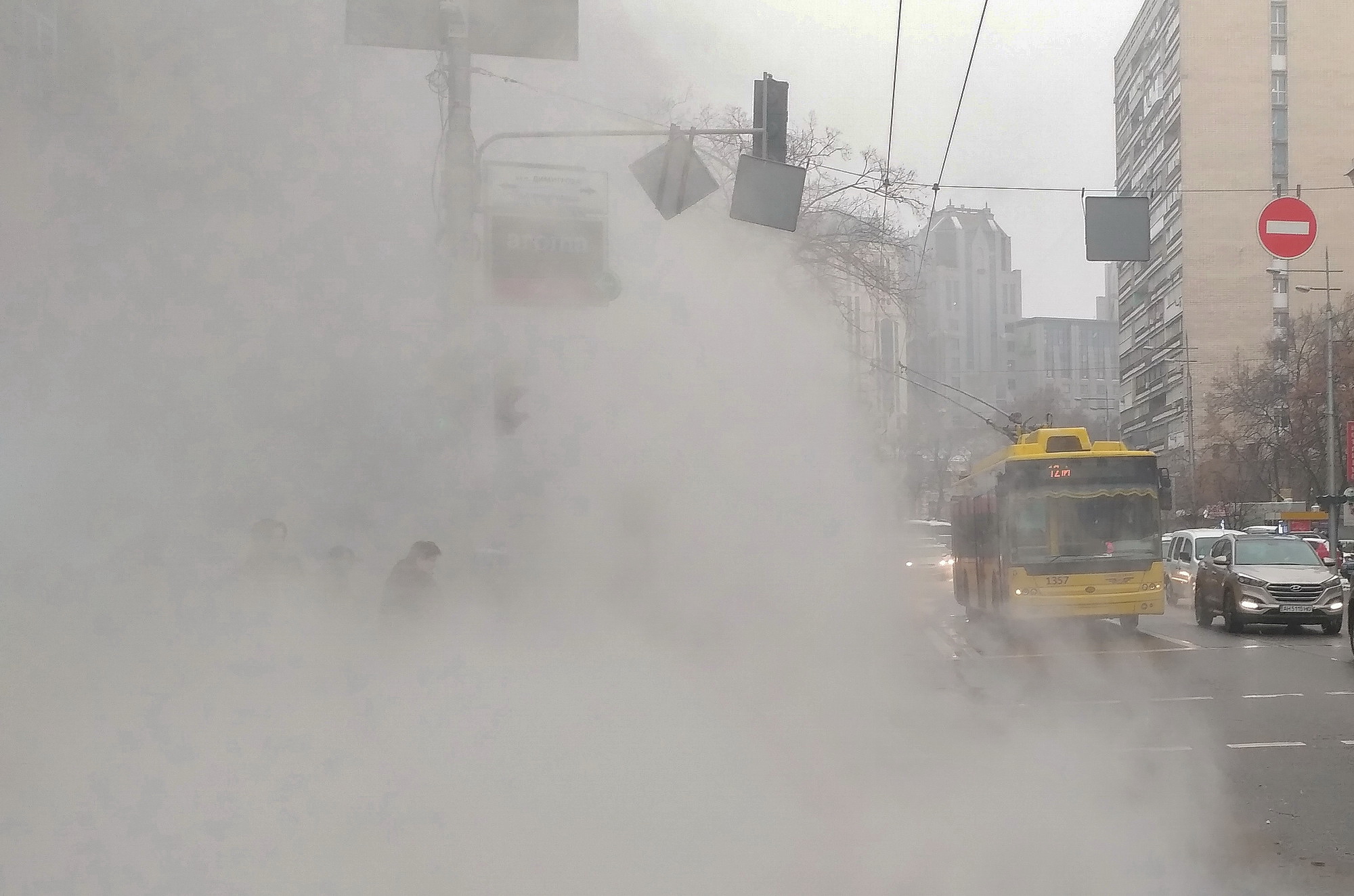
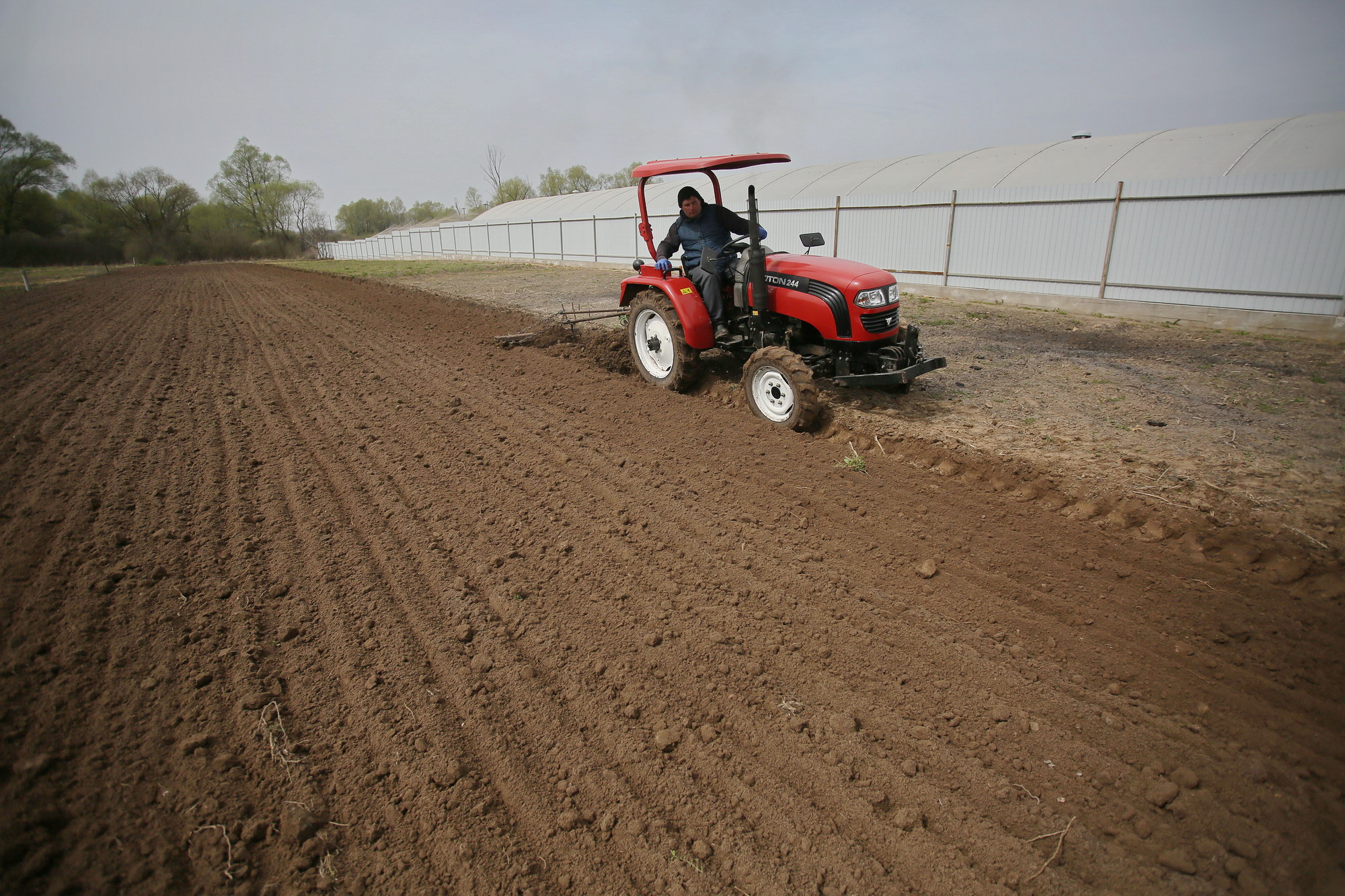
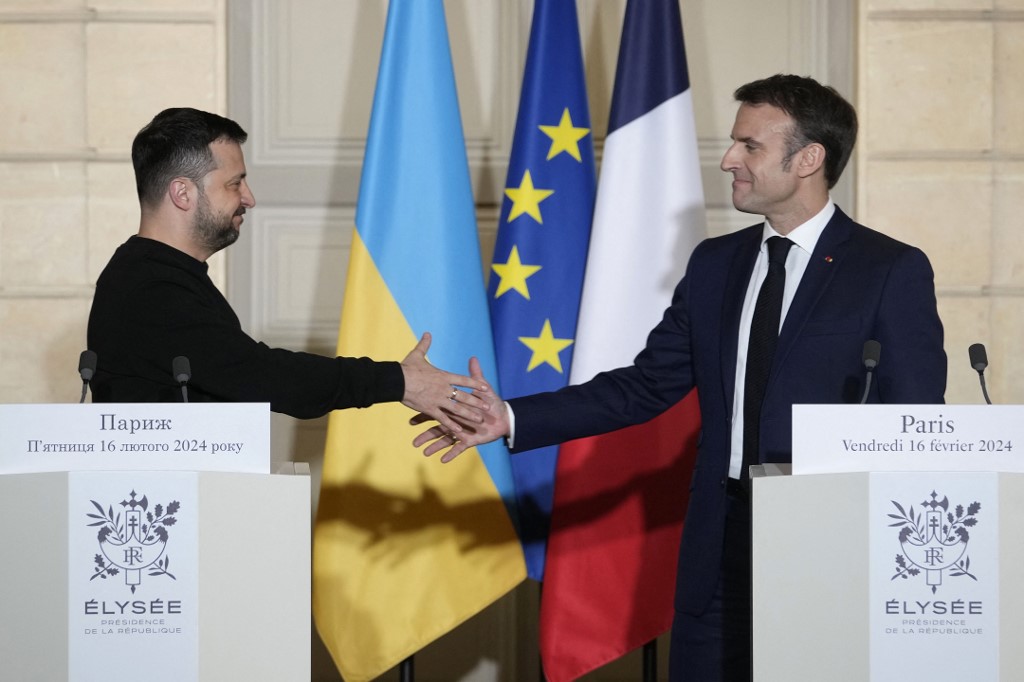
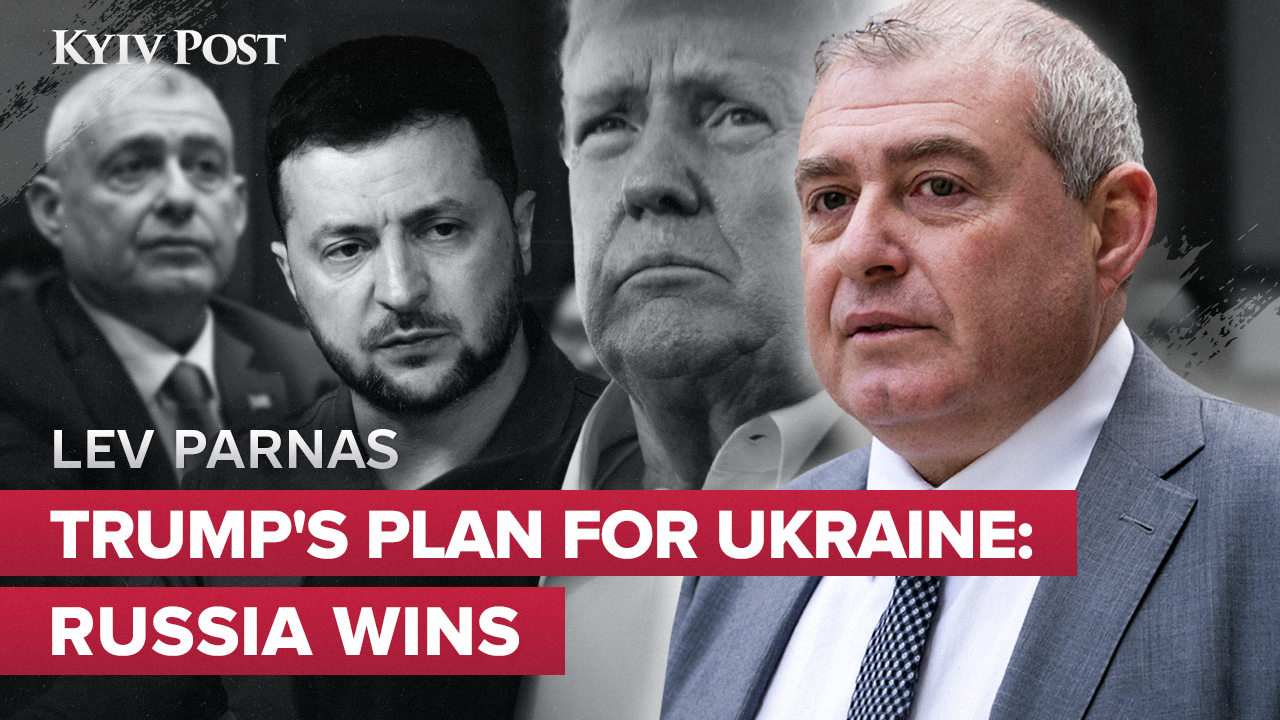



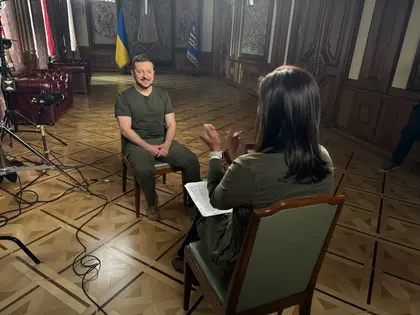
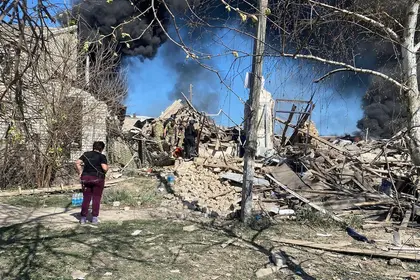
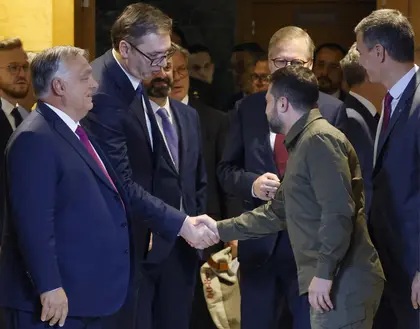
Comments (0)